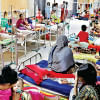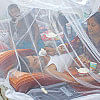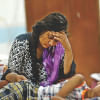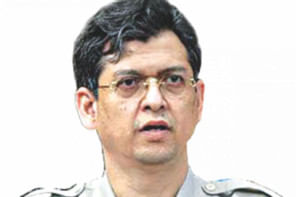Dengue under control: LGD Minister

Local Government Division (LGD) Minister Md Tazul Islam today claimed that the dengue situation is under control.
"We've taken it as a challenge and it (dengue) is fully under control ... because all institutions are working together," he said after launching cleanliness and anti-mosquito week in Dhaka.
Tazul said "failure to control dengue" means giving up. "But in reality, we haven't," he stressed.
The WHO on July 20 said the dengue situation is alarming in Bangladesh but it was not out of control.
Earlier this month, Dhaka South City Corporation (DSCC) Mayor Sayeed Khokon said the medicines they were using to kill the mosquitoes were "slightly less effective than promised".
But on Tuesday he said a joint research conducted by icddr,b and Centers for Disease Control and Prevention (CDC) showing ineffectiveness of insecticide against mosquitoes did not test samples of medicines used by DSCC.
Minister Tazul said the medicine is effective. "We've confirmed this after tests," he claimed.
Khokon, who accompanied Tazul, rejected a claim that the number of dengue patients was 3,00,000 and dubbed it a rumour. "We'll give a fitting reply by controlling dengue," he said.
He had previously admitted that the outbreak was relatively higher this year but stressed that the situation was "under control" and there was no reason to panic.
Dengue, a mosquito-borne disease, infected more than 8,500 people since the beginning of this year and claimed eight lives, according to official figures.
A total of 561 new dengue patients were hospitalised across the country on Wednesday. Of them, 559 were from Dhaka City, according to Dr Aysha Akter, Assistant Director at DGHS.
DSCC launched a campaign to destroy the breeding grounds of Aedes mosquito on July 21. Mayor Khokon said 68 mobile medical teams are working on the ground.
The city corporation also conducted a road show to raise awareness against dengue, Chikunguniya and other mosquito-borne diseases.
What is dengue?
Dengue, a mosquito-borne viral infection, causes flu-like illness, and occasionally develops into a potentially lethal complication called severe dengue.
Dengue viruses are spread to people through the bite of infected Aedes species mosquitoes. It is estimated that about half of the world's population is now at risk, according to WHO.
There is no specific treatment for dengue or severe dengue, but early detection and access to proper medical care lowers fatality rates below 1 percent.
Each year, up to 400 million people are infected with dengue, according to CDC. Approximately 100 million people get sick from infection, and 22,000 die from severe dengue.

 For all latest news, follow The Daily Star's Google News channel.
For all latest news, follow The Daily Star's Google News channel. 








Comments